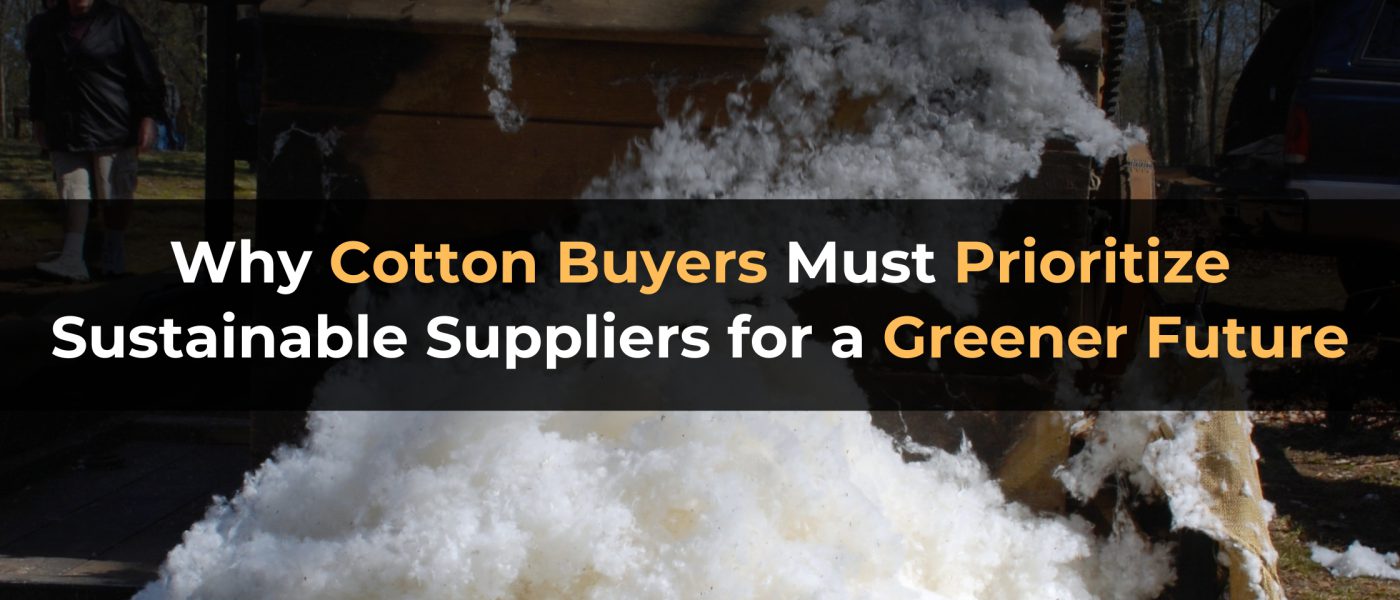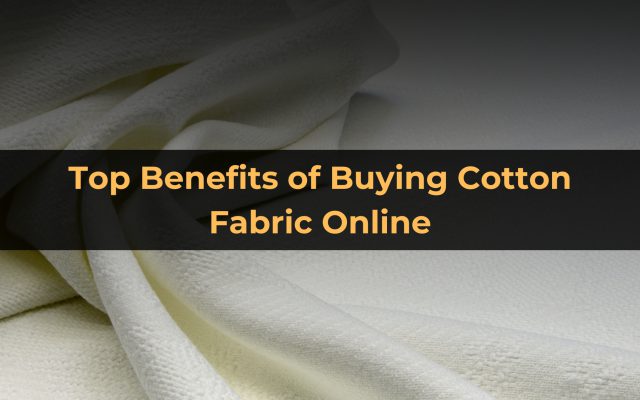Introduction
As the demand for cotton continues to grow, the environmental impact of unsustainable cotton farming and production practices is becoming increasingly evident. For cotton buyers, choosing sustainable suppliers is no longer just an option—it’s a necessity. With the convenience of platforms to buy fabric online India, sourcing sustainable cotton has never been easier.
In this article, we’ll explore why cotton buyers should prioritize sustainable suppliers, the benefits of sustainable practices, and how online platforms can simplify this process.
The Importance of Sustainability in Cotton Sourcing
The cotton industry has significant environmental and social implications, making sustainability a critical focus for buyers.
1. Environmental Impact of Conventional Cotton Production
- Water Usage: Cotton farming is water-intensive, requiring thousands of liters for a single kilogram of cotton.
- Chemical Use: Pesticides and fertilizers used in conventional farming pollute soil and water.
- Soil Degradation: Monocropping depletes soil nutrients, reducing long-term agricultural viability.
2. Rising Consumer Awareness
Consumers are increasingly demanding eco-friendly and ethically produced fabrics. Choosing sustainable suppliers aligns with market trends and enhances brand reputation.
3. Regulatory Pressures
Governments and organizations worldwide are enforcing stricter environmental and labor standards, urging buyers to source responsibly.
Benefits of Choosing Sustainable Cotton Suppliers
Opting for sustainable cotton suppliers offers multiple advantages for buyers and the environment.
1. Eco-Friendly Practices
Sustainable suppliers use organic farming methods, significantly reducing the environmental footprint.
- Water Efficiency: Practices like drip irrigation minimize water usage.
- Pesticide-Free Farming: Organic farming avoids harmful chemicals, protecting ecosystems.
2. Improved Product Quality
Sustainably sourced cotton is often of higher quality, as it avoids synthetic treatments and harsh chemicals.
3. Enhanced Brand Value
Consumers are willing to pay a premium for eco-friendly products, boosting profitability and brand loyalty.
4. Ethical Compliance
Sustainable suppliers adhere to fair trade principles, ensuring ethical labor practices and community well-being.
5. Long-Term Availability
By maintaining soil health and biodiversity, sustainable practices ensure the long-term availability of cotton.
How Cotton Buyers Can Identify Sustainable Suppliers
1. Look for Certifications
Certifications like GOTS (Global Organic Textile Standard) and Fair Trade ensure suppliers meet sustainability and ethical standards.
2. Evaluate Farming Practices
Understand the supplier’s farming methods, focusing on water management, pesticide use, and crop rotation.
3. Request Transparency
Sustainable suppliers are open about their practices, providing detailed information about their production processes.
4. Verify Supply Chains
Use blockchain-enabled platforms or verified online textile marketplaces to trace the origin of the cotton.
5. Check Supplier Reviews
Online reviews and ratings can provide insights into a supplier’s reliability and commitment to sustainability.
The Role of Online Platforms in Sustainable Cotton Sourcing
The ability to buy fabric online India has made it easier for cotton buyers to connect with sustainable suppliers.
1. Verified Supplier Networks
Reputable platforms like TEXchange Global and IndiaMART feature verified suppliers who meet sustainability standards.
2. Variety of Options
Online platforms offer diverse cotton fabric options, including organic and recycled varieties.
3. Convenience
With detailed product descriptions and easy-to-use interfaces, buyers can quickly find sustainable suppliers online.
4. Cost Transparency
Buyers can compare prices across multiple suppliers, ensuring they receive the best value for their investment.
5. Global Reach
Platforms enable buyers to access sustainable cotton suppliers from across the globe, broadening their sourcing options.
Challenges in Sourcing Sustainable Cotton
While the benefits are clear, sourcing sustainable cotton comes with its challenges:
1. Higher Costs
Sustainable practices can be costlier, leading to higher prices for buyers.
- Solution: Look for suppliers offering bulk discounts or long-term contracts.
2. Limited Availability
Organic cotton may have limited availability compared to conventional cotton.
- Solution: Build long-term relationships with suppliers to secure consistent supplies.
3. Verifying Sustainability Claims
Not all suppliers are transparent about their practices.
- Solution: Work with certified suppliers or use platforms that verify supplier credentials.
Steps to Transition to Sustainable Sourcing
- Set Clear Goals: Define your sustainability objectives, such as reducing carbon footprints or ensuring ethical labor practices.
- Audit Current Suppliers: Assess whether your existing suppliers meet sustainability standards.
- Research Alternatives: Use online platforms to find sustainable suppliers offering high-quality fabrics.
- Request Samples: Evaluate the quality of sustainable cotton before committing to large orders.
- Educate Your Team: Train your procurement team to prioritize sustainability in sourcing decisions.
Future Trends in Sustainable Cotton Sourcing
- Increased Consumer Demand: The push for eco-friendly products will drive higher demand for sustainable cotton.
- Advanced Technology: Blockchain and AI will enhance transparency and efficiency in the supply chain.
- Government Incentives: Policies promoting sustainable farming will make eco-friendly cotton more accessible.
- Global Collaboration: International partnerships will strengthen the availability of sustainable cotton fabrics.
Conclusion
For cotton buyers, choosing sustainable suppliers is not only an ethical responsibility but also a smart business decision. By prioritizing suppliers who adopt eco-friendly practices, buyers can enhance product quality, improve brand reputation, and contribute to a greener future.
With the convenience of platforms to buy fabric online India, sourcing sustainable cotton is now easier than ever. Start exploring verified suppliers today and make sustainability a core part of your fabric sourcing strategy.




